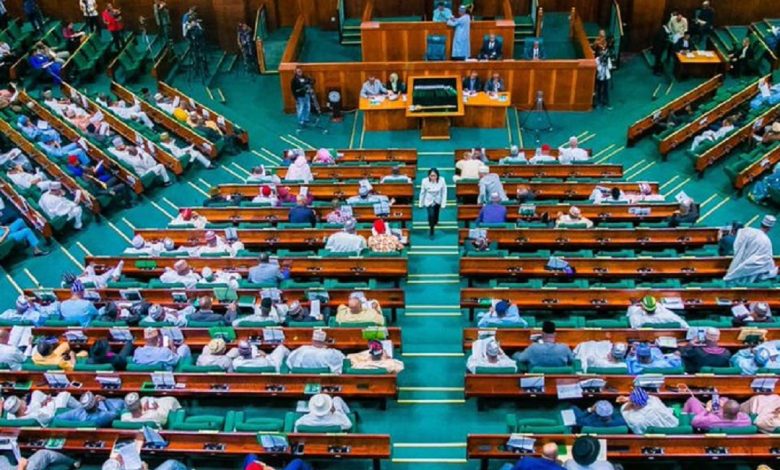
The House of Representatives is set to investigate the status of cryptocurrency and digital asset transactions on national security in Nigeria.
This decision came after the adoption of a motion of urgent public importance presented by Mr. Isiaka Ibrahim, the representative of Ifo/Ewekoro Federal Constituency, Ogun State, on Tuesday.
The investigation will also encompass international money transfer operators, payment gateways, platforms, and cloud computing systems.
Additionally, the status of e-Naira on the global cryptocurrency platform, the cost incurred, processes undertaken, and statutory compliance in creating the digital currency.
READ ALSO: JUST IN: UAE Lifts Travel Ban on Nigerian Visitors After Two-Year Diplomatic Standoff
The House also resolved to engage all relevant stakeholders “To initiate necessary processes for establishing required legislation and regulations, while establishing the profile of operators in the sector such as legal status, parent company, and assess their compliance with our existing statutes or complicity in infractions against Nigeria including money laundering, illicit transactions, currency speculation and bad practices.”
The House also resolved to coordinate the engagement of the Office of the National Security Adviser, other relevant agencies, cryptocurrency exchanges, and stakeholders “In tracking, identifying, and recovering illicit and laundered funds or assets.”
The primary motivation for this action is to ensure that the government investigates cryptocurrency exchanges and other entities with fairness, transparency, and in alignment with international standards.
Recalling, the House has previously focused on cryptocurrency operators in response to petitions filed by civil society organizations over the past few months.
Moving the motion, he highlighted “The growing global concerns about the national security implications of cryptocurrency transactions through cryptocurrency exchanges including consumer and investor security as these exchanges are said to enable money laundering by criminals and terrorists for their illicit activities.”
He added that as part of its sweeping market-friendly reforms designed to attract substantial foreign direct investment into the countries’ struggling economy, “This administration reversed the ban on cryptocurrency transactions in Nigeria imposed by the previous administration.
He assured the international community that the current moves by the Federal Government to sanitise the system “Should not be perceived by the global community and international investors as a policy somersault so early in the life of the administration and the existence of a hostile business environment.”
Isiaka also highlighted the concerns expressed by the Central Bank of Nigeria over the possibility of illicit transactions and money laundering on the cryptocurrency exchanges and their seeming use as an alternative platform for determining local foreign exchange rates.
He added that the United States of America Treasury 2022 National Money Laundering Risk Assessment indicated that “Fiat and traditional financial activities contributed substantially higher (over 200 per cent) than digital assets transactions to global money laundering activities.
He said the conflict with the government about whether or not the crypto exchanges are determining the local foreign exchange rate and usurping the functions of the national bank “Does not appear to arise in other developed climes where appropriate statutes and regulations have been enacted and enforced to superintend crypto and other digital asset transactions.”









Leave a Reply